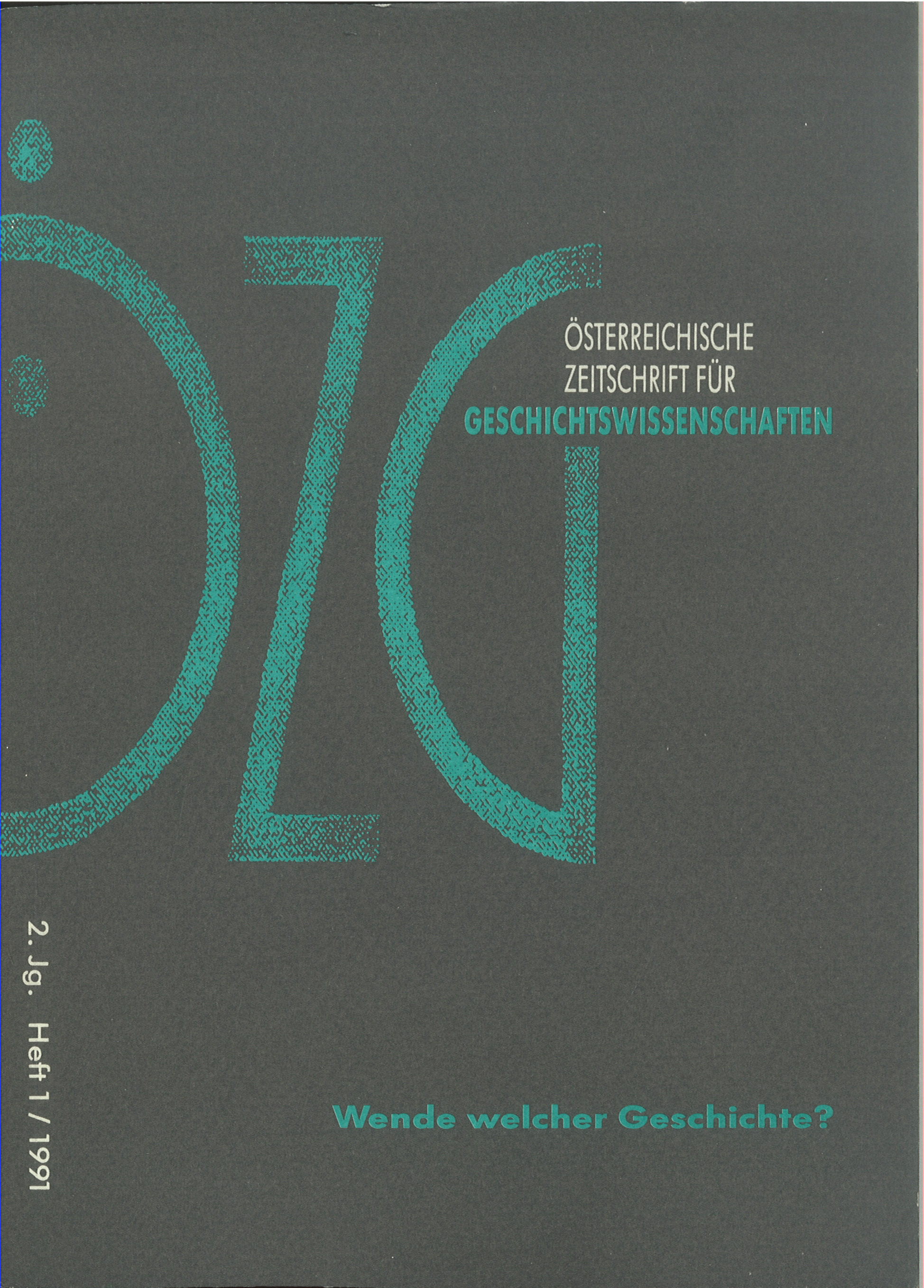Was bleibt von der Geschichtswissenschaft der DDR?
DOI:
https://doi.org/10.25365/oezg-1991-2-1-3Abstract
In this article the development of East German historiography is outlined and its author, a leading social historian of the former GDR, poses the question what is worth continuing from this historiographic tradition. In the GDR, social history had reached high standards already in the 60ies, but came to a halt with Karl Marx; thus it could no longer keep up with the accelerated process of innovation of social history in the Western countries since the late 60ies. Etatism and personalization in the GDR historiography had been the consequence. Only a small group of younger social historians displayed a critical and democratic attitude but did not discuss in public. The author maintains that three currents of social history might survive the end of the GDR: a „structural history" being mainly historical demography and computer aided economic and social history; the „history of everyday life" inspired by the history of mentalite and historical anthropology; and a „history of societies" as a histoire totale of small entities. Only in such a plurality, the author argues, social history could flourish in the territories of the former GDR.


